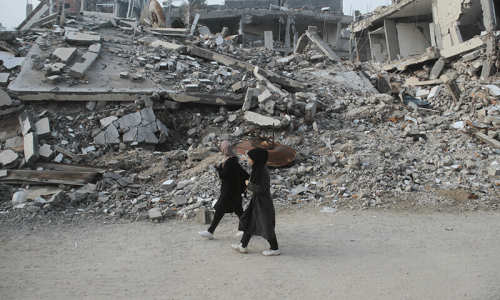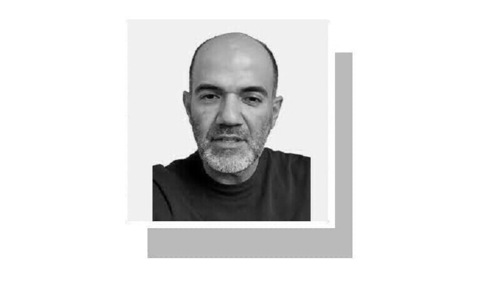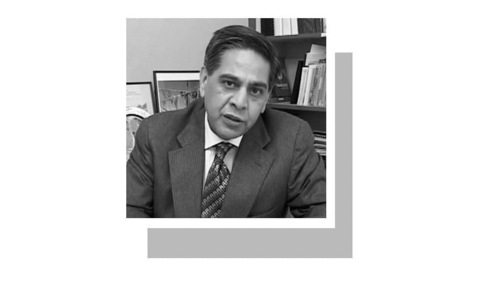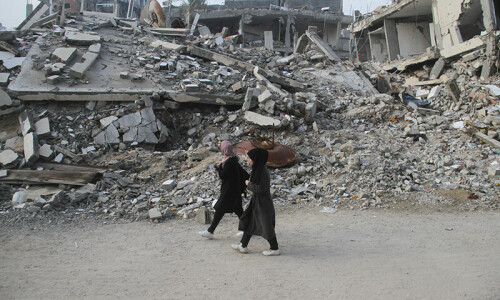NEW DELHI: A landmark pact with the United States aimed at bringing India into the global nuclear marketplace has won a reprieve, but the deal is not out of the woods yet, analysts say.
In a major turnaround, communist allies of the government said late last week they would allow India to pursue crucial talks with a UN nuclear watchdog body as part of steps to implement the accord. Until then, they had loudly opposed the deal.
“The logjam has been broken but the agreement is still not completely in the clear,” said New Delhi-based political analyst Uday Bhaskhar.
The deal would allow nuclear-armed India to buy civilian nuclear technology to help fuel its fast-growing economy, despite not having signed the Nuclear Non-Proliferation Treaty.
The agreement “is an effort to open closed doors so we can obtain nuclear fuel and technology from other countries such as the USA, Russia and France and remove the shortage of electricity in the country,” Premier Manmohan Singh said on Saturday, reaffirming the Congress government’s commitment to the deal.
The Left, which says the pact could curb India’s weapons programme and harm its sovereignty by drawing New Delhi too close to the US, had threatened to withdraw support for the minority government, forcing early polls.
The communists’ fierce opposition forced the government to put the agreement on hold last month and Singh warned Washington the pact might collapse.
But later on Friday, the communists agreed to let India enter into talks on nuclear safeguards and inspections with the International Atomic Energy Agency, which must sanction the deal before it is finally approved by the US Congress.
“It’s a positive development even if there is some way to go,” said Smruti Patnaik at the Institute for Defence Studies and Analyses.
Domestic politics underlie the two sides’ reluctance to force a showdown over the deal struck by Singh and US President George Bush in 2005 that is regarded as a centrepiece of warmer Indo-US ties, analysts say.
The government is wary of a confrontation as it faces a key election in Gujarat state, ruled by the opposition Hindu nationalist Bharatiya Janata Party, which also opposes the deal.
The leftists have come under heavy criticism over the killings of at least half a dozen opponents of industrialisation of farmland in the communist stronghold of West Bengal state.
“The communists are very much on the defensive — that’s why the 180-degree turn,” said Rajeshwari Rajagopalan, an analyst at the Observer Research Foundation in New Delhi.
The communists, however, still insist any agreement emerging from the talks with the UN monitoring agency must be approved by a joint panel of coalition and communist leaders.
“The findings of the committee will then be taken into account before the operationalisation of the India-US civil nuclear cooperation agreement,” foreign minister Pranab Mukherjee said on Friday.
Leftist leaders such as A.B. Bardhan have rejected the idea that agreeing to the talks with the UN monitoring agency marked tacit acceptance of the deal by the communists.
“It (approval) will go stage-by-stage,” said Bardhan, general secretary of the Communist Party of India.
The agreement also still has to be cleared by the 45-country Nuclear Suppliers Group (NSG) which oversees the international nuclear trade.
“The NSG talks will not be a cakewalk as you’ll have challenges from countries worried about nuclear non-proliferation,” said analyst Bhaskar.
Proponents of the deal say it needs to get through the US Congress before the US presidential campaign enters high gear, which could make it tougher to win bipartisan approval of the agreement.—AFP












































Dear visitor, the comments section is undergoing an overhaul and will return soon.